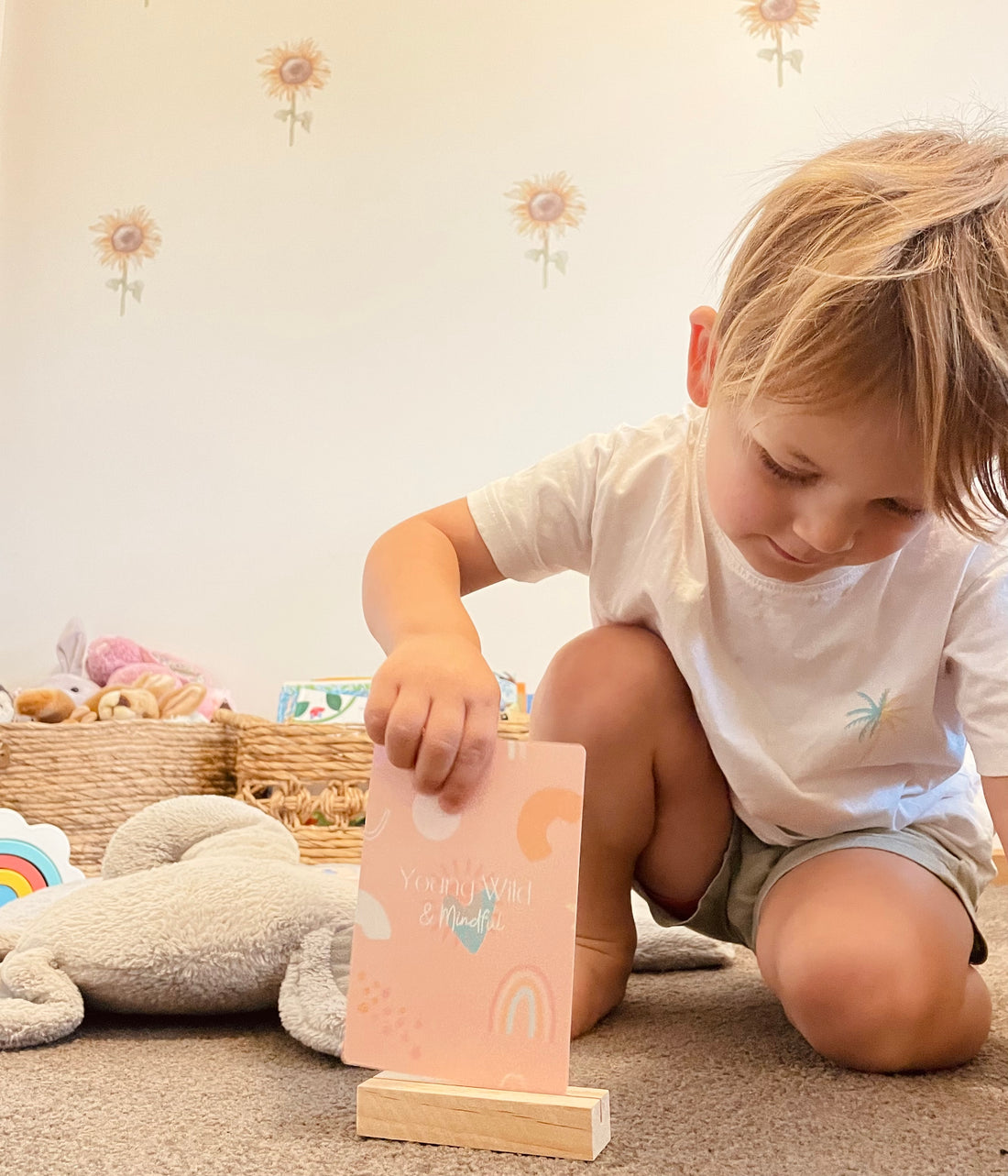
The Benefits of Mindfulness for Children
Share
In today's fast-paced world, teaching children the art of mindfulness can have a profound impact on their overall wellbeing and development. We have been busy researching and, in this blog post, we explore the numerous benefits of mindfulness for children, helping you understand why it might be beneficial to incorporate it into your child’s daily routine.
1. Improved Emotional Regulation
Mindfulness equips children with the tools to navigate their emotions effectively. By learning to recognise and accept their feelings without judgement, kids can manage stress, anxiety, and anger more constructively. This emotional intelligence sets a foundation for healthier relationships and coping mechanisms in the future.
2. Enhanced Concentration and Focus
Practicing mindfulness helps children sharpen their focus and concentration skills. By encouraging them to be present in the moment without judgment, they can become aware of their thoughts and feelings, center their attention and calm the whirlwind of thoughts that often accompanies daily life so that they can reset and find mental clarity.
3. More Relaxed Mind and Body
Mindfulness acts as a gentle guide, teaching children the art of relaxation in the midst of life's bustling activities where they can find a peaceful sanctuary within. As they become more adept at mindfulness, children can cultivate an inner calmness that they can tap into whenever they feel overwhelmed. This ability to relax not only fosters a sense of tranquility but also equips them with a valuable coping mechanism, enabling them to face life's uncertainties with composure.
4. Reduced Stress and Anxiety
Mindfulness techniques, such as deep breathing and guided imagery, provide children with effective stress-reduction tools. Regular practice lowers cortisol levels, promoting relaxation and reducing anxiety. This is particularly valuable in today's high pressure educational environments.
5. Increased Self-Esteem, Self-Acceptance and Self-Compassion
When children learn to be mindful, they develop a positive self-image. By accepting themselves, their experiences, thoughts, feelings and emotions, they build self-compassion and self-esteem. Building a strong sense of self lays the groundwork for a confident and resilient approach to life's challenges.
6. Better Sleep Quality
Mindfulness practices have been linked to improved sleep quality. By calming the mind and reducing racing thoughts, children can establish healthy bedtime routines, ensuring they get restorative sleep that is crucial for their growth and development.
7. Strengthened Social Skills
Mindfulness encourages empathy and understanding in social interactions. By learning to be present with others, children develop active listening skills, compassion, and a deeper sense of connection to those around them. These skills are fundamental for building strong and meaningful relationships.
8. Academic Success
Research shows that children who practise mindfulness tend to perform better academically. Improved focus, enhanced problem-solving skills, and better emotional regulation all contribute to a conducive learning environment, setting the stage for academic excellence.
Incorporating mindfulness into a child's daily routine is an investment in their future wellbeing. By fostering emotional intelligence, concentration, and resilience, we equip our children with the essential life skills they need to thrive in an ever-changing world. If you start to integrate mindfulness into your child's life, hopefully you will soon witness the transformative power of a calm and centered mind, and watch them flourish. ♡
